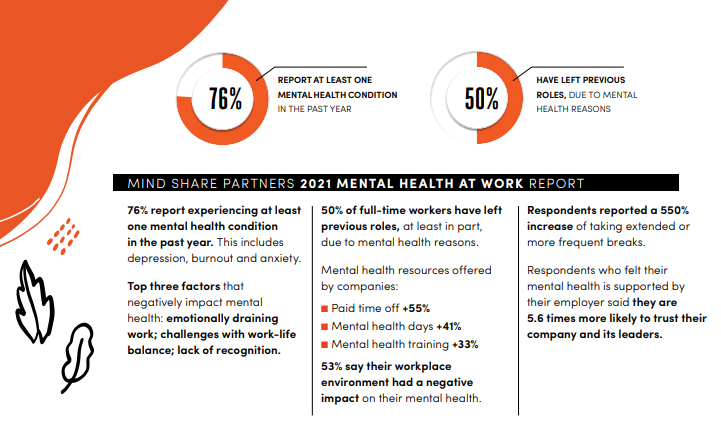Mental health is becoming a key focus in the workplace.
The past TWO YEARS have shined a bright light on mental health and its impact on workplace productivity and employee retention. Companies are evaluating the importance of mental health throughout their workforce. More flexible hours, remote work opportunities, wellness programs, mentor systems for new employees, in-office massages and counseling are just some benefits companies are exploring to improve mental health in the workplace.
Even with stigmas around mental health issues collapsing, employees are still highly likely to keep stress hidden. According to Deloitte, “95 percent of employees who have taken time off due to stress named another reason, such as an upset stomach or headache.”
Forbes lists four key trends in creating a workplace culture of mental health: regular manager trainings; coaching for company leaders; mental health employee resource groups (ERGs); and mental health as a part of inclusion efforts. Harvard Business Review also lists several methods to help create a culture of care, including: implementing regular surveys; managers sharing their own experience with mental health issues; offering more flexibility; and fostering a deeper connection with employees.
“Leaders must model these and other mentally healthy behaviors for employees to truly feel like they can do the same,” a Harvard Business Review article stated. “Having conversations between managers and direct reports to articulate individual working styles and preferences supports inclusion. Employers must also ensure that teams have the resources and bandwidth necessary to do their jobs effectively while remaining mentally healthy.”

From the November 2022 issue of Direct Selling News magazine.


